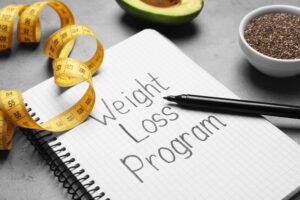Breaking the Cycle of Stress Eating: Regain Control of Your Habits
Stress is an inevitable part of life, and while everyone experiences it, how we respond to stress can vary dramatically. For many people, stress eating becomes a coping mechanism, a way to momentarily escape from overwhelming feelings or anxiety. Unfortunately, stress eating often leads to a vicious cycle, where emotional triggers cause overeating, followed by feelings of guilt or shame, which in turn fuels more stress and eating.
Understanding the connection between stress and eating habits is crucial in breaking this cycle. This article explores why stress causes cravings for comfort foods, the emotional toll it takes on your health, and practical strategies to regain control over your eating habits.
Why Do We Eat When We’re Stressed?
When faced with stress, the body goes into fight-or-flight mode, releasing stress hormones like cortisol and adrenaline. Cortisol, in particular, increases appetite and cravings for foods high in sugar, fat, and salt—often referred to as “comfort foods.” These foods provide a temporary emotional relief, but they offer little nutritional value, and regular indulgence can lead to weight gain and other health issues.
- Cortisol and Cravings: When cortisol levels are elevated due to stress, the body craves quick energy sources, like carbohydrates and sugary foods. This is why stress often drives people to reach for a bag of chips or a candy bar rather than healthier options.
- Emotional Comfort: Stress eating is often less about physical hunger and more about finding comfort. Foods that are rich in sugar and fat can stimulate the brain’s reward system, releasing dopamine—a neurotransmitter associated with pleasure. In moments of stress, this temporary emotional comfort can feel like an easy solution.
Unfortunately, these coping mechanisms aren’t sustainable. Emotional eating does not address the root cause of stress, and over time, it can lead to feelings of guilt, dissatisfaction, and even greater stress.
The Emotional Toll of Stress Eating
Stress eating is more than just a dietary issue; it has a significant emotional impact as well. Many people who struggle with stress eating find themselves stuck in a cycle of emotional highs and lows. They feel momentary satisfaction when indulging in comfort foods, but this is often followed by guilt and regret. These negative feelings can worsen emotional well-being and trigger further stress, creating a repetitive cycle that’s difficult to break.
1. Feelings of Guilt and Shame
After a bout of stress eating, many individuals experience feelings of guilt or shame. They may be upset with themselves for overindulging or for eating unhealthy foods. These emotions can create a sense of failure, making it harder to get back on track with healthier habits.
2. Impact on Self-Esteem
Repeated episodes of stress eating can erode self-esteem over time. People often feel as though they lack control over their eating habits, which can diminish their confidence and create a sense of helplessness. Low self-esteem may also lead to further emotional eating, perpetuating the cycle.
3. Relationship with Food
Stress eating can distort a person’s relationship with food, turning it from a source of nourishment into a tool for emotional comfort. This unhealthy relationship may lead to emotional overeating, food addiction, or unhealthy dietary restrictions in an attempt to regain control.
Breaking the Cycle of Stress Eating
The good news is that breaking the cycle of stress eating is entirely possible. It requires understanding the triggers, implementing healthier coping mechanisms, and practicing mindful eating. Below are some practical steps to help regain control over stress-related eating habits.
1. Identify Your Triggers
The first step in breaking the cycle of stress eating is to identify your personal triggers. What situations or emotions lead you to reach for comfort foods? Common triggers include:
- Work-related stress
- Relationship problems
- Financial worries
- Boredom or loneliness
- Exhaustion or lack of sleep
By recognizing what sets off your stress eating, you can better prepare to manage these emotions without turning to food.
2. Practice Mindful Eating
Mindful eating is about being present in the moment and paying attention to your hunger cues and eating habits. Instead of mindlessly snacking while watching TV or scrolling through your phone, take time to savor each bite, noticing the taste, texture, and satisfaction of the food. This practice helps reduce emotional eating by encouraging a more intentional relationship with food.
- Check-in with Yourself: Before you eat, ask yourself if you’re truly hungry or if you’re eating to soothe stress. This simple question can help prevent emotional eating.
- Slow Down: Eating slowly allows you to recognize when you’re full and prevents overeating. It also gives your body time to digest and send fullness signals to your brain.
3. Find Healthy Coping Mechanisms
Since stress eating is a coping mechanism, finding healthier alternatives is essential for breaking the cycle. Here are some strategies to manage stress without turning to food:
- Exercise: Physical activity is a proven stress reliever. It helps reduce cortisol levels and releases endorphins, which improve mood and emotional well-being. Even a short walk can make a significant difference in how you feel.
- Meditation and Deep Breathing: Meditation and deep breathing exercises can help calm your mind and reduce feelings of stress and anxiety. These techniques are especially helpful in moments of acute stress when the urge to stress eat is strong.
- Journaling: Writing down your thoughts and emotions can be a powerful way to process stress and clear your mind. Journaling provides an outlet for expressing emotions, making it less likely that you’ll turn to food for comfort.
- Connect with Others: Talking to friends, family, or a therapist can provide emotional support and help you navigate stressful situations more effectively. Social connections are essential for emotional well-being, and sometimes, simply talking about your stress can reduce the urge to eat for comfort.
4. Create a Healthy Environment
Your surroundings can have a significant impact on your eating habits. To minimize stress eating, create an environment that supports healthier choices.
- Keep Healthy Snacks on Hand: When the urge to snack arises, it’s important to have healthy options readily available. Stock your pantry with nutritious snacks like fruits, vegetables, nuts, and yogurt so that you’re less likely to reach for processed comfort foods.
- Out of Sight, Out of Mind: If certain foods trigger stress eating, it can be helpful to keep them out of sight. Avoid storing unhealthy snacks in easily accessible places like your desk or kitchen counter.
5. Establish a Routine
Creating a daily routine can provide structure and stability, reducing feelings of stress and helping to regulate eating habits. Here are a few ways to incorporate routine into your day:
- Meal Planning: Plan your meals and snacks ahead of time, so you’re not making impulsive food choices during stressful moments.
- Consistent Eating Schedule: Eating meals at regular times each day helps regulate hunger and can prevent overeating later on.
- Sleep Routine: A good night’s sleep is essential for managing stress and controlling cortisol levels. Aim for 7-9 hours of sleep each night to reduce stress and improve overall well-being.
Seek Professional Support
Sometimes, breaking the cycle of stress eating requires professional help. If you find it difficult to manage stress on your own or if stress eating is significantly impacting your health and well-being, consider seeking the support of a therapist, nutritionist, or health coach. They can help you address the underlying causes of stress eating and create a personalized plan for managing your emotional health and eating habits.
Conclusion: Reclaim Control Over Stress Eating
Stress eating is a common response to life’s challenges, but it doesn’t have to define your relationship with food. By understanding the triggers and emotional impact of stress eating, practicing mindful eating, and finding healthier coping mechanisms, you can break the cycle and regain control over your eating habits.
If you’re struggling to manage stress and find that it’s impacting your eating habits, it’s important to take action. By making small changes in your routine, practicing mindfulness, and seeking support when needed, you can reduce the urge to stress eat and improve your emotional well-being.
For expert guidance on managing stress, health, and nutrition, contact Red Line Health and Wellness in Burleson, Texas, at 817-631-8036. Our team is here to help you take control of your health and break free from the cycle of stress eating.




